Roy Kinyon is a natural storyteller.
From his days growing up on a farm in Appleton, to playing baseball and basketball, to Cribbage games while floating around the Pacific Ocean on the U.S.S. Shoshone during World War II to his children, Kinyon tells the stories with ease.
Then he leans across his kitchen table and says with a grin, “As you can see, I have a pretty good memory.”
That kitchen table in his Lockport home, where Kinyon lives independently at 101 years old, is plopped beside the spoils from one of his proudest days: memorabilia from a night in his honor at Sahlen Field, where he was given a contract by the Buffalo Bisons last year, 80 years after he declined a late-season tryout to enlist in World War II.
But for years, Kinyon kept some of his most interesting stories bottled up.
Not until later in life did Kinyon’s children know their father was on the cusp of being a professional baseball player. A man who, on his latest birthday in May, wanted to prove to his family that he could still hit a baseball, didn’t feel the need to divulge his athletic past often, even to those closest to him.
A broken leg working in a garage after the war was incorrectly reset ended his own sports days. If never getting a real shot as a pro baseball player bothered Kinyon, he never mentioned it other than saying, “They didn’t make any money then.”
Instead, Kinyon simply devoted his time to his four children — Kathy, Bruce, Gary and Carl — until his due came 100 years old with the Bisons. But he’s going to get at least one more moment of baseball glory when he is inducted into the Western New York Baseball Hall of Fame Sept. 13 at Lake Erie Italian Club Banquet Center in Lackawanna.
“He always stressed just to play your hardest and things will work out for you,” Bruce Kinyon said. “But, obviously, we’re very proud of him and happy he’s lived to be 101. That’s always nice. His mother lived to be 98. So he had long genes in his family.”
It’s still impossible to crack Kinyon’s vault when it comes to regrets as a player, but it opens wide when he talks about his early baseball career. He says when it came time to go to high school, he chose Barker over Newfane because it had a basketball court and baseball diamond.
He pulls out old newspaper clippings saved by his mother and a faded stat sheet from the 1941 Barker baseball team, which shows Kinyon hit .714 with 17 RBIs in seven games.

Roy Kinyon stands in front of a Buffalo Bisons calendar featuring a ceremony honoring him last year, when he signed a contract with the team 80 years after declining a tryout to enlist in the Navy during World War II.
He talks about how the Krull Park summer league team, at the displeasure of his father, poached him. And how he hit a home run off his brother, Ralph, who was 18 months older, which led to a quiet evening at the dinner table.
At the end of his baseball career, Kinyon learned he went the entire 1942 season without an error at shortstop. But by the final game, five professional scouts came to watch the games.
“The Bisons came down that night and says, ‘Well, we want you to come up and take batting practice,’” Kinyon recalled. “I says, ‘Thanks a lot, but I’m going in the Navy tomorrow.’ So I went to the Navy.”
Kinyon chose to enlist in the Navy to avoid getting drafted by the Army to be placed in a foxhole and ended up in Richmond, Virginia, for diesel school on specialized engines and then Little Creek, Virginia, for six months of amphibious training to learn to repair boat engines.
While stationed in Florida, Kinyon badgered the base commander at Fort Pierce to allow him on the baseball team, but he sat the bench until finally getting to pinch hit. He started a rally and was a mainstay when the team traveled the state playing other military squads, while later being recruited to play point guard for a Navy basketball team.
Kinyon was finally deployed after two years of training and was sent to Iwo Jima, where a kamikaze suicide plane crashed on a ship right in front of the Shoshone. While most have seen the iconic image of the American flag being raised by soldiers at Iwo Jima, Kinyon saw it live.
After touring various islands of Japan after the atomic bombs were dropped, Kinyon returned home. He was slated to return to Krull Park in 1947, but his broken leg prohibited that, although he met his future wife, Theresa, while recuperating in the hospital.
Instead of filling his children with stories, though, Kinyon became a schedule dispatcher at Harrison Radiator and coached his sons in Lockport Little League, basketball at the YMCA and started them in bowling, although never a prolific bowler himself.
“He never really talked about it,” Bruce said. “My grandmother kept all these clippings and she had the statistics from when he played basketball in high school, and baseball in high school in a scrapbook. We didn’t learn about it until later. He never talked about it, he just taught us how to play.”
When Kinyon found a swimming buddy at the Lockport YMCA who had his own athletic success, Kinyon still didn’t mention much. Kinyon’s sons told his new friend and former Sabres player and broadcaster, Mike Robitaille, of Kinyon’s baseball prowess.
“It’s like the guys that fought the wars — which he did — and didn’t talk about that much, either,” Robitaille said. “He was just the same with his baseball career. He just didn’t bring it up. Maybe he felt he was boasting or something and a lot of athletes are like that. They just get all bashful and, ‘awe shucks’ and all that until you really work it out of them.”
Robitaille bonded with Kinyon over sports and joked that Kinyon was so tuned in that he gave him information he didn’t know. But they also found common ground through their families, as Kinyon wasn’t shy when it came to boasting about his children.
Through many long conversations — until Kinyon traded swimming for his garden of flowers at 99 ½ years old — Robitaille sensed a genuine decency about Kinyon, enhanced by choosing to ask about the psychology of NHL players and coaches, rather than gossip and inside information.
“I enjoy being around people that are good people and sometimes it seems that you kind of have to look around for those people,” Robitaille said. “... It’s very hard to find a decent, honest, individual. I don’t know what he was like when he was young, but I know at 98-99, and 100 when I knew him, he was very much like that. He was a very pure human being that didn’t have too much bullshit to spread during that time.”





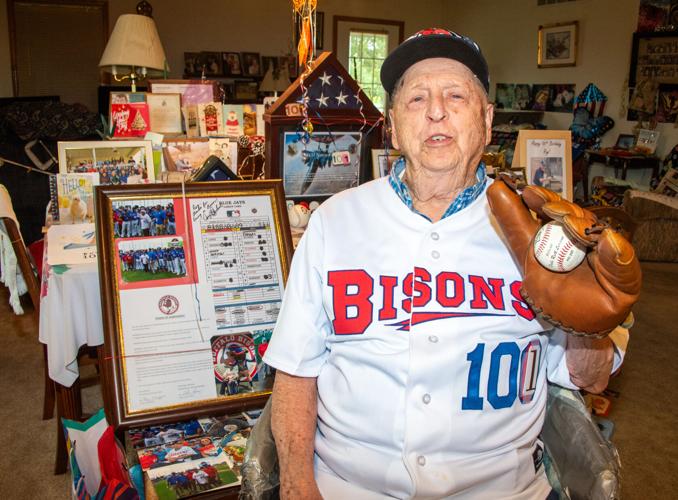


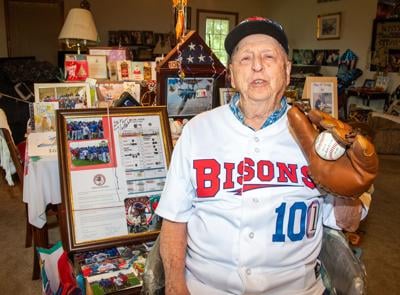


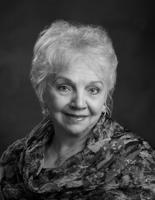

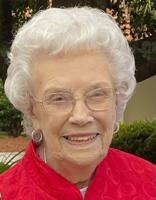
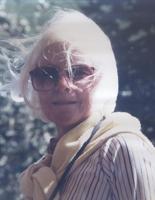
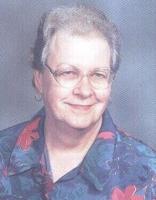
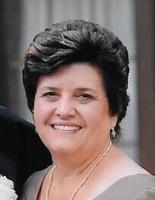
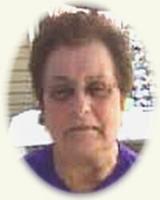





Commented
Sorry, there are no recent results for popular commented articles.